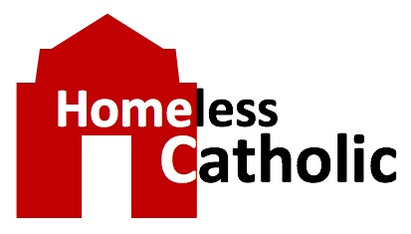Winding road
The heart is a winding road, full of twists and turns, God says in Jeremiah. Our hearts travel upon a zigzag, sinuous, snaky and serpentine road. The GPS for our hearts has been infected. The source data for our travels comes from another place than the original developer’s code for our heart. Our heart was not designed by God as a meandering organ. The heart does not even feel comfortable as a crooked, sly, and devious part of our body. The erratically directed GPS of the heart is an unwelcome, but unavoidable calamity. We are deceived in our path because the heart is no longer solely maintained by the original architect.
Roots in God
http://www.usccb.org/bible/readings/022516.cfm
Bible translations vary on the word that Jeremiah uses to describe the motivation of our hearts. “Tortuous” is the word our translators chose. “More tortuous than all else is the human heart.” The most popular word used by bibles is deceitful. I also found instances of crooked, sly, evil, perverse, devious, shrewd, deeper, and one frightful proposition — desperately wicked. But, only one “tortuous! I believe our translator nailed the Lord’s intent. Tortuous!
But what does the word mean?
It’s easy to misread the word and understand “torturous.” In my first preparation of this reflection I did exactly that. But tortuous is far more descriptive than torturous. The latter we all know to mean tortured. But tortuous means “winding road.” A far more imaginative description of the human condition and especially the condition of the human heart.
“More tortuous than all else is the human heart, beyond remedy; who can understand it? I, the Lord, alone probe the mind and test the heart, to reward everyone according to his ways, according to the merit of his deeds.”
Who can understand the heart and probe our mind? Only the Lord.
In this text God told Jeremiah that our hearts are damaged and cannot be repaired by anyone other than God. Consequently, Jeremiah reports, we need to trust in God and not someone or something else. And, we need to do that even though our hearts fight against trusting that God will help us, lead us, and love us.
The heart is a winding road, full of twists and turns, God says in Jeremiah. Our hearts travel upon a zigzag, sinuous, snaky and serpentine road. The GPS for our hearts has been infected. The source data for our travels comes from another place than the original developer’s code for our heart. Our heart was not designed by God as a meandering organ. The heart does not even feel comfortable as a crooked, sly, and devious part of our body. The erratically directed GPS of the heart is an unwelcome, but unavoidable calamity. We are deceived in our path because the heart is no longer solely maintained by the original architect.
The heart seems logically associated with our emotions. But whatever physical organ exemplifies the source of our emotions and thoughts, Is God right? Are our hearts and minds tortuous, and consequently also leading others astray? Is the core of our being truly wicked? Is this a fair assessment? In fact, scripture frequently refers to our emotions and thought processes as represented by the heart.
Ecclesiastes says “the hearts of human beings are filled with evil, and madness is in their hearts during life; and afterward to the dead!”
Mark, 7:21, says even worse things. “From within people, from their hearts, come evil thoughts, unchastity, theft, murder, adultery, greed, malice, deceit, licentiousness, envy, blasphemy, arrogance, folly.”
Matthew, 12:15, quotes Jesus, who says, “Gross is the heart of this people; they will hardly hear with their ears, they have closed their eyes, lest they see with their eyes and hear with their ears and understand with their heart and be converted, and I heal them.”
Dang.
The baseline of all these scriptures agrees with the story in Genesis: humans belong to a fallen creation. The insistence that the path of the human heart tends toward evil braces hard against a common notion today that people can straighten themselves out. Take the bull by the horns and clear your path of distractions. (Ever try to grab a bull by the horns?) We just need to work harder at being good. We need to meditate upon our goodness, and trust our instincts. We are essentially good. Our anxieties and angst about temptations are false, say the experts. We can fix our worried, anxious, tumultuous hearts with a mantra, a program, a self-help book, a wise mentor, or an ideology. The scriptures are insistent, on the other hand, that we can’t fix this.
The serpentine, deceived heart began with Adam and Eve’s snaky exercise of free will, trusting in someone other than God. The result? Even as we crush the head of the serpent with our foot, attacking his lies that misdirect our heart, he will strike our heels. This scene portrayed in Genesis means that neither Eve, or any of us, can conquer the snake. All subsequent generations of her offspring (that’s us) will be bitten by the deceitful one, unable to escape. Jeremiah confirms this. Human resources are weakened because we broke with God. We are “beyond remedy,” incapable of overcoming the insidious nature of evil’s winding path. And so, our hearts are tortuous.
Every subsequent book of scripture describes the difficult battle that humans have with the heart. The wisdom in the text from Jeremiah, however, reveals a treasure — turn our hearts to God and he will protect us from the effects of the snake bite. God’s ability to see through the apparent ugliness of our hearts and the perverseness of our minds tells us that if we acknowledge him as our authentic GPS, as our authority in life, and as the hope for the future, then our trust will be repaid. God has an eye on where we attempt to go. He knows the hidden part of heart. He knows the underlying desire that marks our “ways.”
God has chosen not to remove the evil code that has slithered into our DNA. By a divine system of weights and measures, however, our true motives and intentions are visible to God. Beneath what looks only like evil intent he sees our transformed self. Transformed, in fact, by him! Nothing is hidden from him. He knows when our heart and mind, beneath the confusion of a fallen world, wants to follow him. No one else can do that.
And each of us has a different journey. Our unique “ways” of dealing with evil come with their own rewards. We have an intimate relationship with the creator that varies according to how, and whether, we realign our GPS to God. Are we are rooted in God? There are some who seem firmly holding onto God’s hand as they walk. Others of us seem to be distantly associated, limited to only a Facebook friendliness with God. We may travel with more of a hand wave to God, venturing on our own. A few (maybe there are more than a few) concentrate on other paths, and have completely forgotten God’s presence.
Who among us wants God to look deeply into our hearts, and to be the source that nourishes us and directs our life? And, who among us abhors God’s visibility into our hearts, rejecting his mapping for us. Do we consider him a peeping Tom, or an Orwellian inquisitor; or worse, an outmoded cartographer who no longer understands the landscape that he himself created? Do we prefer our own faulty GPS trek through the universe more than God’s?
From the practical truth of the God we know as Father, Son and Spirit, heaven is a gift that we cannot earn. Why would we believe we must be lone wolfs against evil in this life? Scriptures tell us over and over about our inability to remove the affliction of our deceived heart. The affliction is where we must begin. We need to recognize the peace of God’s path when it clearly appears. He reorients our wandering and calms our tangled hearts.
God’s intervention is constant, and not just when we’re consciously aware of his presence. God steps in and straightens our path often, with miraculous course corrections. If we are not always aware and gracious of his undeserved blessings, trust may be the problem. We may live like we are a barren bush, left in the wasteland, rather than a tree planted beside the waters. We are the reason we live our life in the desert, because we have trusted in our own human effort to remove evil, to fix our tortuous GPS, and redirect our lost hearts. When we fail, rather than turn to God we look for human solutions. When humans fail us, we turn to distractions on the journey. When distractions fails us we stop in our tracks, no longer going anywhere, and give up.
We often mistake our misdirected hearts as punishment from God. We deserve our wasteland. Quite the contrary. When God searches our hearts and tests our minds he does so in a conversation, in a relationship where God wants to reward us with signs and helpful travelers, to bless us, to acknowledge our desire to be a child of his, a servant of his, and his brother and sister. He wants us to stretch our roots out to his stream, so when the heat comes, our leaves remain green. In years of drought, we show no distress, and still produce fruit.
Or, we do not. We want to be left alone.
When God explores our mind and monitors our heart, he urges us to reach out our veins and arteries, our roots, to him. He wants us to produce fruit; that is, to serve him by nourishing others with a straight path. When our roots are in him he can give strength to us, alight our path, fill our veins with his love, and we become part of his great reward. Only then can we help others to see the path. Only then are we useful to God in the reparation and of all hearts.
* A direct translation of the Hebrew word found in Jeremiah’s text is עָקֹ֥ב, which sounds like Ah-Cob (I think). Ah-Cob is an adjective, which all the translators, except the NAB, say means “insidious or deceitful.” The word actually comes from two Hebrew words that put together mean “foot-tracked.” The variant collection of translations points to what Jeremiah hears God say about the human heart. It is a foot-tracked thing. The heart is a trampled upon place. We all know what the Mideast cultures think of the idiom of planting your shoe upon something. If the heart has been walked upon, the heart has been publicly shamed.

